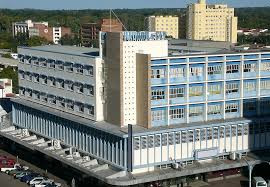
The Zimbabwe Investment Authority (ZIA) has approved investment projects worth over $1 billion in the first quarter of 2018, with most interest being directed to the mining, manufacturing and energy sectors.
By Victor Bhoroma
This figure is significantly higher than the $150 million recorded in April 2017. Over 62 investment licences were also issued from January to April. Even though most of the deals are still far from being implemented, there is no doubt that the change of leadership in government generated some positive interest from international investors on Zimbabwe’s economic prospects.
There is a chance that net FDI inflows into the country can surpass $500 million for the first time since 2014, which may show a significant recovery for the country. The clear take out for government is that leadership, policy change on governance and confidence are key in attracting investment into our economy.
The government recently made amendments to the Indigenisation and Empowerment Act that had been a thorn to investment in the economy. The amendments were made through the Finance Act passed on March 14 2018 and published through the Extraordinary Government Gazette.
The Act is now limited to the extraction of diamond and platinum with compulsory local ownership of 51%. However, the government has pointed out that exceptions will be provided for if investors justify exemption from the Act and that compliance is not enforced on project commencement.
The government can give written permission to a business to comply with the Act over a period of time. The government also engaged on a blitz of various international destinations such as EU, China and Britain in search of investment. Ordinarily these efforts should bring respite to the local economy, but results largely hinge on the manner in which the upcoming general elections will be held.
Investors are still concerned with the Zimbabwean business climate which they deem hostile as compared to other Sadc destinations. To ensure sustainability of policies to lure investment into the country, there is need to review the general cost of doing business locally. Key aspects here include royalties to miners, taxes to manufacturing entities, cost of electricity and lastly foreign currency allocations.
- Chamisa under fire over US$120K donation
- Mavhunga puts DeMbare into Chibuku quarterfinals
- Pension funds bet on Cabora Bassa oilfields
- Councils defy govt fire tender directive
Keep Reading
As highlighted during the recent completion of the Pepsi plant by Varun Beverages, investors have challenges to ascertain project costs in Zimbabwe. The cost of doing business locally is still very high, with taxes being the major contributor.
Investors have expressed concerns over the multiplicity of taxes and the increased number of economic agents that are in the investment chain such as Zimbabwe Revenue Authority (Zimra), Environmental Management Agency (EMA), Zimbabwe Special Economic Zones Authority (ZIMSEZA), Government ministries, local authorities or councils, Zimbabwe Mining Development Corporation (ZMDC), Zimbabwe Investment Authority (ZIA), National Social Security Authority (NSSA), Zimbabwe Manpower Development and the Minerals Marketing Corporation of Zimbabwe (MMCZ).
Besides all these agents claiming a share through various taxes; duplication of effort, lack of transparency and accountability are also rife. To steer investment the government needs to quickly act on the following;
Reviewing mining royalties
Zimbabwe is getting firm interest for large scale investments in precious metals such as platinum, gold, diamond, nickel and chrome among others. This confirms Zimbabwe’s status as a mineral rich country.
However, Sub Saharan Africa has several mineral rich countries such as South Africa, Botswana, DRC, Angola, Namibia and Zambia. This means that competition for foreign investment is becoming stiff and investors make decisions based on operational costs, which have a direct bearing on profits.
Zimbabwe’s mining royalties are among the highest in the region. A royalty is a usage based tax, which is calculated as a percentage of the gross fair market value of minerals produced (not quantity). Royalties are levied in terms of Section 244 of the Mines and Minerals Act of Zimbabwe. Royalties on gross revenue to government are pegged as follows; diamond 15%, platinum 10%, gold 5%, base metals and industrial minerals 2% and Coal 1%.
There is a compelling case to review these royalties downwards across the sector to provide incentives and match regional peers which compete for the same dollar with Zimbabwe. Miners have been lobbying government on double taxation and reduction in royalties for years now.
Vat incentives in economic zones
Zimbabwe gazetted a number economic zones in various towns. The zones are managed by the Zimbabwe Special Economic Zones Authority (ZIMSEZA), but there has been no movement in these zones as investors do not see any real benefits of moving to those designated zones.
It is clear that the economies of agglomeration are not yet available in these areas. Therefore, there is need to kick start it all by tax breaks on Value Added Tax (Vat) to large investments that may bring the multiplier effect.
The Dangote Group investments are examples of such projects if they materialize. The gazetted tax incentives such as cuts on corporate tax, exemption from customs duty on capital equipment and employee tax holidays will then support the main incentive on Vat to the investor.
One stop investment shop
Much has been said on podiums for this key policy with no tangible results on the ground. The one stop Investment shop houses key aspects to investment under one roof to ensure convenience, coordination and transparency in handling investment processes. It allows incorporation of companies, application of investment licenses, registration of the various tax heads and payments, work and residence permits, EMA certification, acquisition of land and shop licenses, acquisition of mining licenses and other operational permits.
Completing this key project will effectively reduce processing and turnaround times for permits, licenses, clearance forms and registrations of new investments into the country. Rwanda, South Africa, Zambia and Ghana have all implemented this project with great results evident in their FDI inflows.
Victor Bhoroma is business analyst with expertise in strategic marketing and business management aspects. He is a marketer by profession and holds an MBA from the University of Zimbabwe (UZ). For feedback, mail him on vbhoroma@gmail.com or Skype: victor.bhoroma1.











